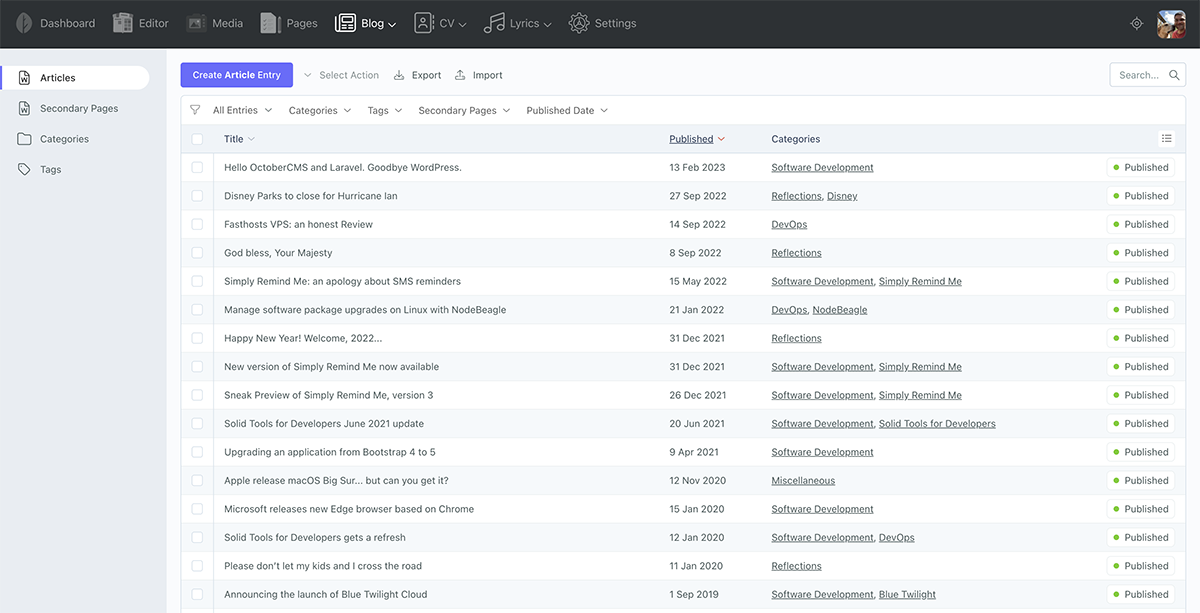I first learnt of OctoberCMS when I saw this tweet from @CatkinFox:
@octobercms blows WordPress out of the water, in almost every regard. Definitely check it out!
— 🏴CatkinFox (@CatkinFox) November 7, 2022
As a long-term WordPress user, I was intrigued. I went to OctoberCMS.com and was even more intrigued when I saw that OctoberCMS is built on Laravel - my PHP framework of choice. I played around with a live demo instance for some time and a week later, purchased my first licence.
I rebuilt the website for my software brand - Waggybytes Technology - in OctoberCMS in very little time. As a Laravel developer, building the site "felt right". WordPress always felt "hacky".
My experience with OctoberCMS was so good, I decided to replace WordPress altogether and rebuild andysh.uk (this website) in OctoberCMS too.
This article - along with the rest of my website here at andysh.uk - is now being served from OctoberCMS.
This marked a significant change for me both personally, and technically, for 2 key reasons.
Open-source becomes proprietary
OctoberCMS began life as an open-source content management system. Starting with version 3, it switched to a commercial, proprietary sales model.
Although the source code is still open, it does require the purchase of a licence for each website you want to use it on. As a software developer, I'm not against paying for decent software. OctoberCMS is very polished and the licence is very affordable ($29 per site at the time of writing.)
Historically, my website has always been run from an open-source content management system, like WordPress, Expression Engine or Bolt.
This change marks the first time that my website - a hobby project - is being run from a commercial software product.
Laravel, everywhere
I started learning Laravel back in 2016 when I wrote my Blue Twilight PHP photo gallery, and then later my Simply Remind Me free email reminders and simple SMS reminder app.
Since then, any new application I've written, such as my NodeBeagle Linux management platform, uses Laravel.
Although my website has always been written in PHP, it's always been in a content management system that's had its own PHP framework (e.g. Expression Engine uses CodeIgniter, Bolt uses Symfony.)
OctoberCMS uses Laravel. Therefore now, for the first time, all my web properties are using Laravel under the hood. This small fact means so many things on my websites (such as pagination) are straight-forward to implement as I already know the underlying technology and framework.
 OctoberCMS features a polished backend control panel that is both developer and user-friendly. Here are all my blog articles.
OctoberCMS features a polished backend control panel that is both developer and user-friendly. Here are all my blog articles.
What's next?
Now I am using a more flexible content management system, my aim is to revamp the home page of my website.
Rather than just listing all blog articles, I'd like to surface useful content such as the latest blog article and tutorials, for example, as well as providing more visual links to my software applications.
I also plan on developing an add-on that will allow users to comment on blog articles, and reply to comments. Maybe also a more feature-rich contact form than the simple one I've implemented at the moment.